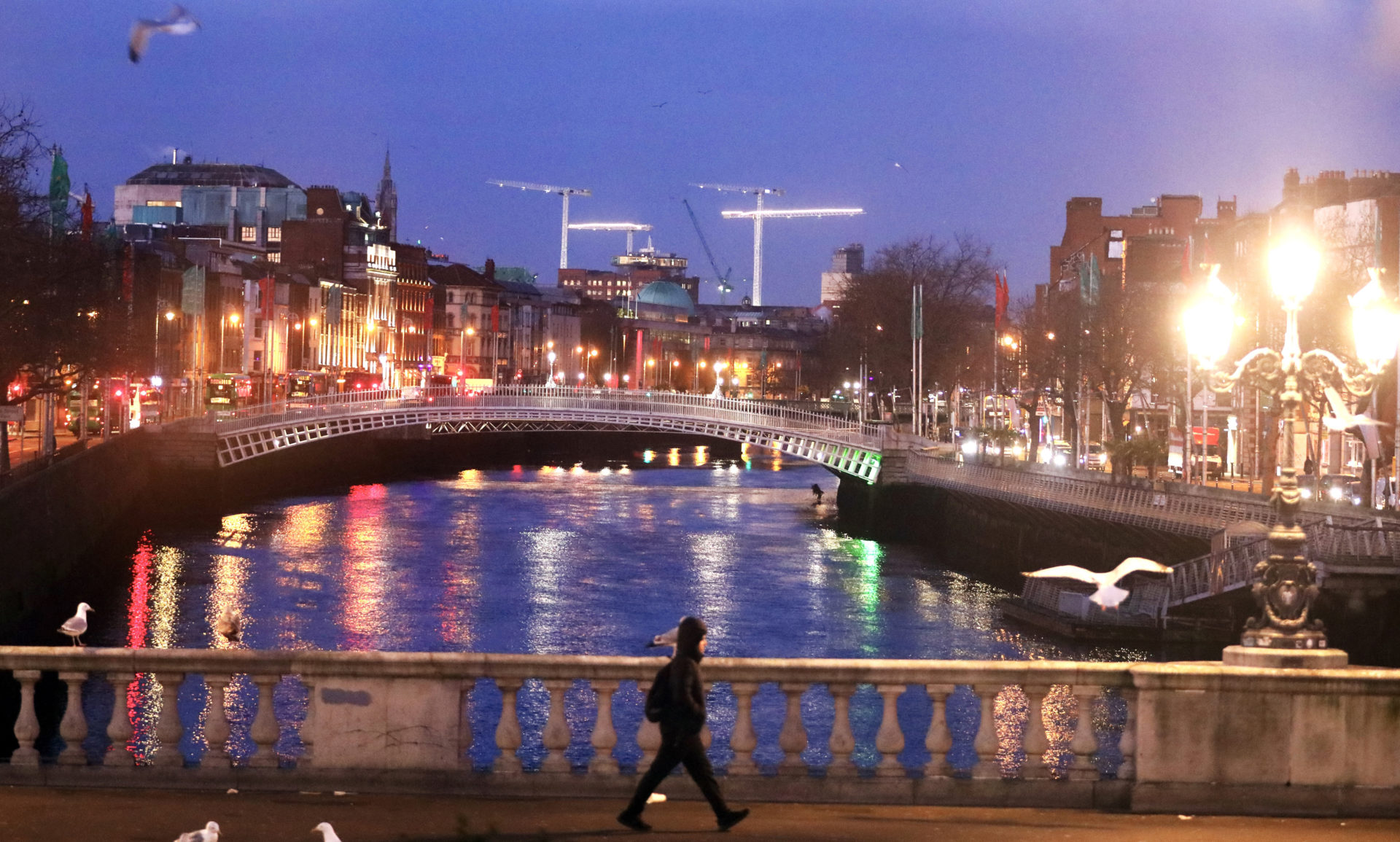The current weather is “not exceptionally cold” for the time of year, Met Éireann has said.
Over the weekend, a Status Yellow low temperature and ice warning was issued and the mercury dipped below zero.
The cold weather is expected to last for the rest of the week but forecaster Gerry Murphy said, by historical standards, it is nothing unusual.
“Overall, our weather in recent years has been relatively mild,” he told Lunchtime Live.
“Then people notice a cold spell much more than perhaps previously.”
 A person walking in Dublin city early in the morning, 5-1-22. Image: Leah Farrell/RollingNews.ie
A person walking in Dublin city early in the morning, 5-1-22. Image: Leah Farrell/RollingNews.ieThe human body’s internal temperature is 37°C but physicist Phil Smith said the temperature has to get much colder than that before most people feel uncomfortable.
“It seems quite mild if you think about 10°C but… it has a profound effect on our heart, our lungs, our brain,” he said.
“If you imagine we’re in a room now and we’re cooling it down gradually to 10°C, your brain is tasting your blood, it’s tasting the temperature and sending signals to the rest of the body to keep your core, your main organs at around 37°C.
“By the time the temperature has dropped to even 18°C you stop sweating, the hairs of your arms are starting to stand up and science tells us 18°C is a tipping point where the body starts to defend itself and those core temperatures.”
1.5°C target
Despite Ireland’s recent cold weather snap, global temperatures in 2023 averaged out at “exceptionally high levels”, according to the EU’s Copernicus Climate Change Service.
Last year was the hottest since records began in 1850; on average, the temperature was 1.48°C warmer than pre-industrial levels and at points it was 2°C higher.
In 2015, the Paris Agreement saw world leaders decide to "pursue efforts" to try and stop the planet warming more than 1.5°C above pre-industrial levels and "well below" 2°C.
The 1.5°C target has since been described as an “iconic figure” within diplomatic circles but Copernicus believes in the 12-month period ending in January or February 2024 it will be breached.
 Tourists at the Roman Colosseum shelters under umbrellas from the hot sun, 15/07/2023. Image: amer ghazzal / Alamy Stock Photo
Tourists at the Roman Colosseum shelters under umbrellas from the hot sun, 15/07/2023. Image: amer ghazzal / Alamy Stock Photo“The extremes we have observed over the last few months provide a dramatic testimony of how far we now are from the climate in which our civilisation developed,” Copernicus Climate Change Service Director Carlo Buontempo said.
“This has profound consequences for the Paris Agreement and all human endeavours. If we want to successfully manage our climate risk portfolio, we need to urgently decarbonise our economy whilst using climate data and knowledge to prepare for the future.”
Speaking to Newstalk Breakfast, Maynooth Professor Emeritus John Sweeney said the trend means the planet could end up with a “3°C rise in temperature, which would be really quite catastrophic.”
Main image: A cold day in Dublin. Picture by: RollingNews.ie









